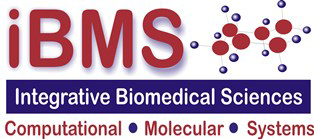Research overview
Research within the IBMS is aimed at understanding the mechanisms, diagnosis and treatment of disease relevant to Africa.
Activities
► To make fundamental discoveries, through multidisciplinary, systems-oriented, quantitative molecular and mechanistic research, that will be relevant to the biomedical community in Africa.
- To carry out biochemical and structural biology research to identify new therapeutic candidates for infectious and non-communicable diseases.
- To carry out interdisciplinary chemical & systems biology research to explore the molecular mechanisms that underlie cellular function and contribute to human disease.
- To analyse and model large-scale datasets in an integrated and iterative manner with experimentation in order to understand molecular mechanisms and evolution of disease, to identify new biomarkers of disease, and to discover new therapeutic- and vaccine targets.
► To enable physical, biological & medical scientists in the disciplines of Biochemistry, Computational Biology, Structural Biology, Molecular Medicine, and Chemical & Systems Biology to train and work together in an integrated health research environment.
► To facilitate research by provision of relevant state-of-the-art technology platforms and equipment related to the teaching, training and research in the various Computational Biology & Systems Medicine disciplines and to forge appropriate infrastructure networks with the wider University and national communities.
► To design and undertake training for students and staff on these platforms, including at the individual and group levels, by developing and offering University certifiable short-courses and/or workshops that aim to build research capacity. A number of such short-courses/workshops are already in existence and will be further formalised.
► To translate research findings to improve the diagnosis, prevention and treatment of disease.
Researchers and groupings within the Department of Integrative Biomedical Sciences typically currently publish in areas of molecular mechanisms of cancer, identification and characterisation of anti-cancer drugs, GnRH receptor biology, angiotensin converting enzyme (ACE) structure/activity and inhibition, functional proteomics related to diagnostics, drug and vaccine development, haem biosynthesis (and the porphyrias), structural studies in proteins related to malaria, cancer and TB. On the Computational Biology side research covers work in infectious disease (HIV, TB, host-pathogen interaction, genetic background), virus genome evolution and recombination research, human genetics, and the development of bioinformatics software and tools in these areas.
Links to research pages:
